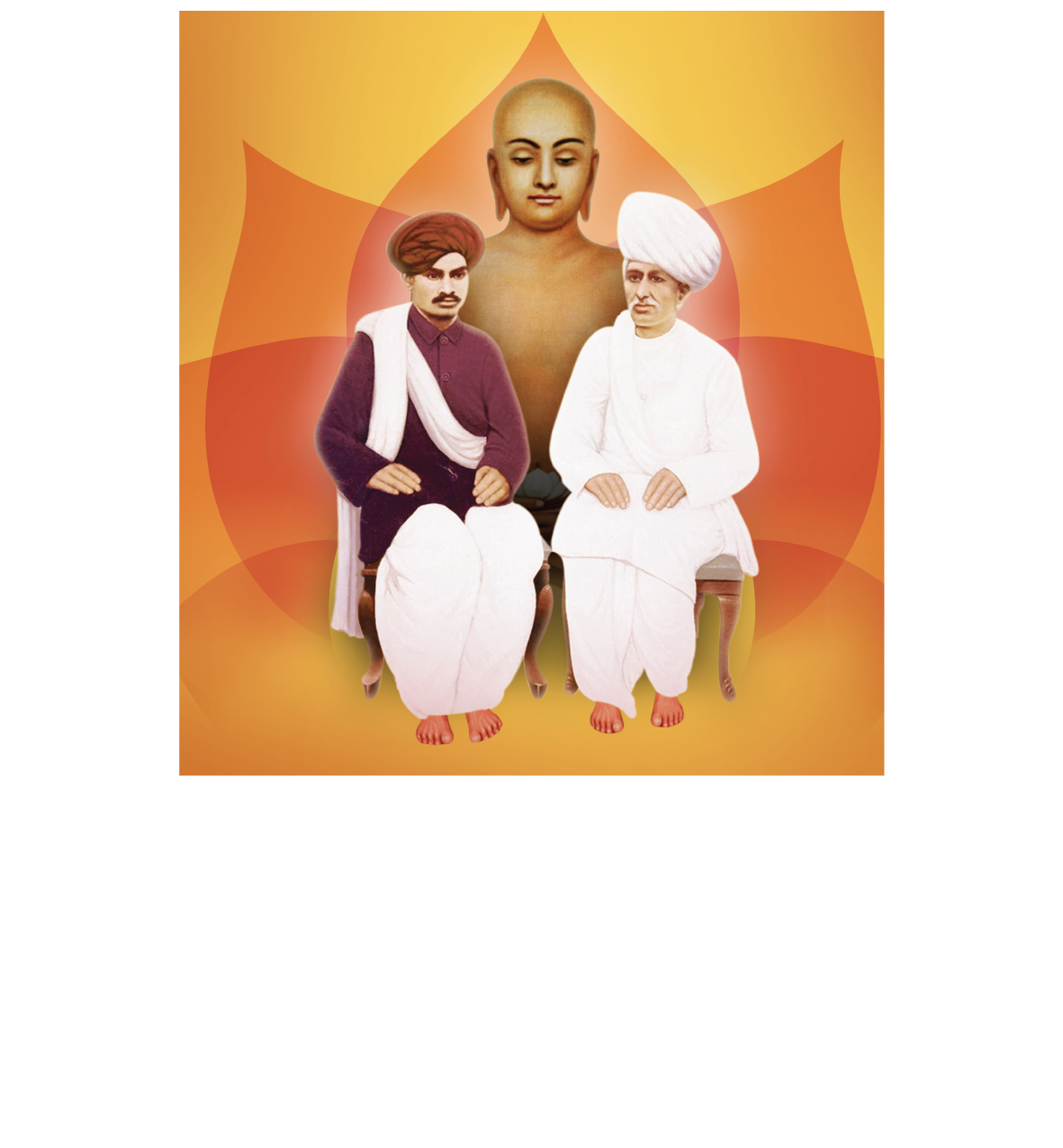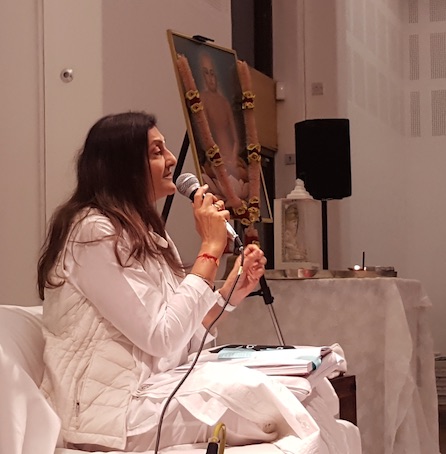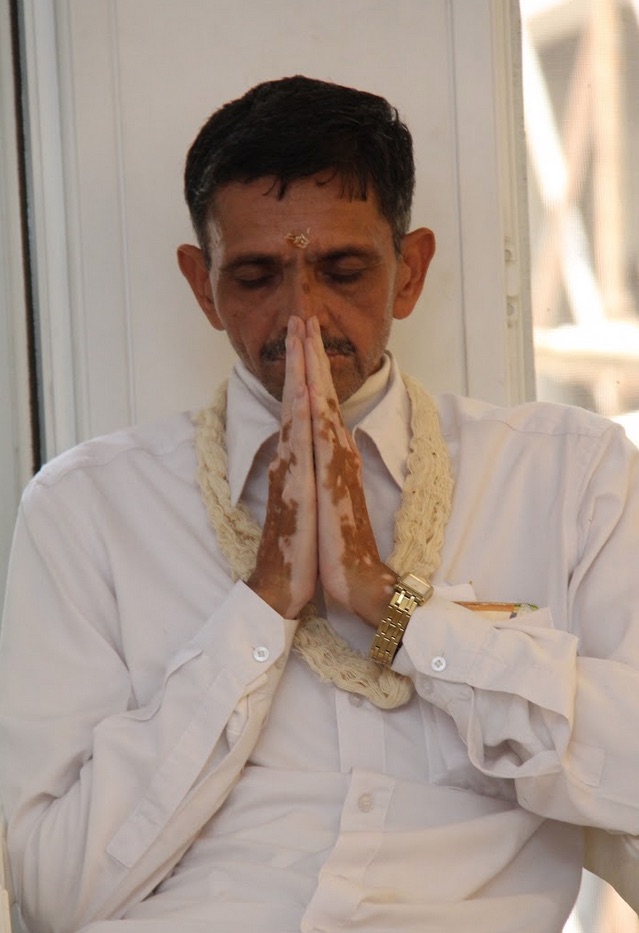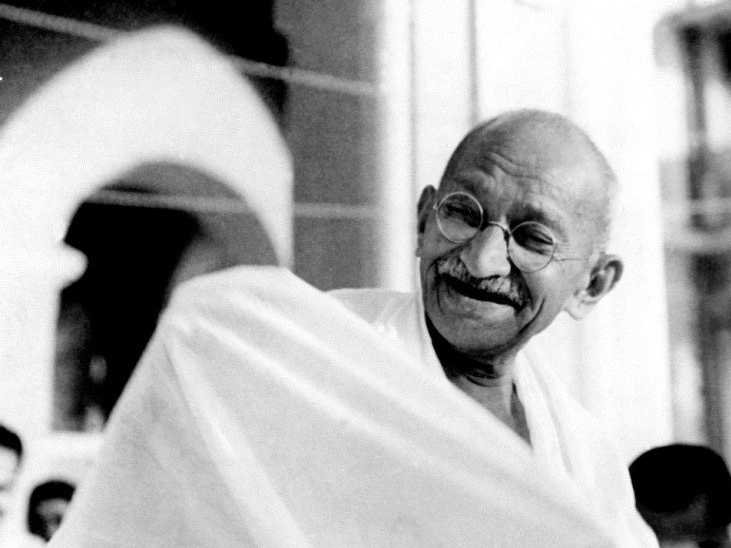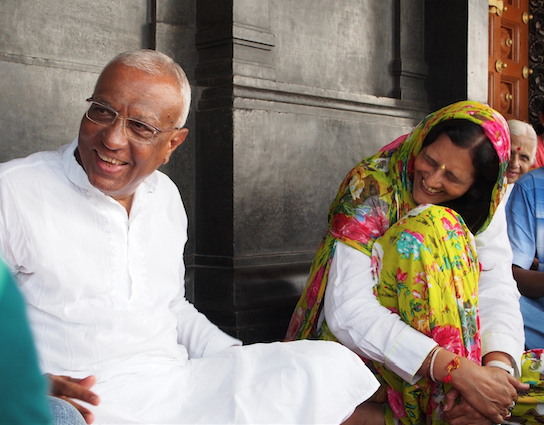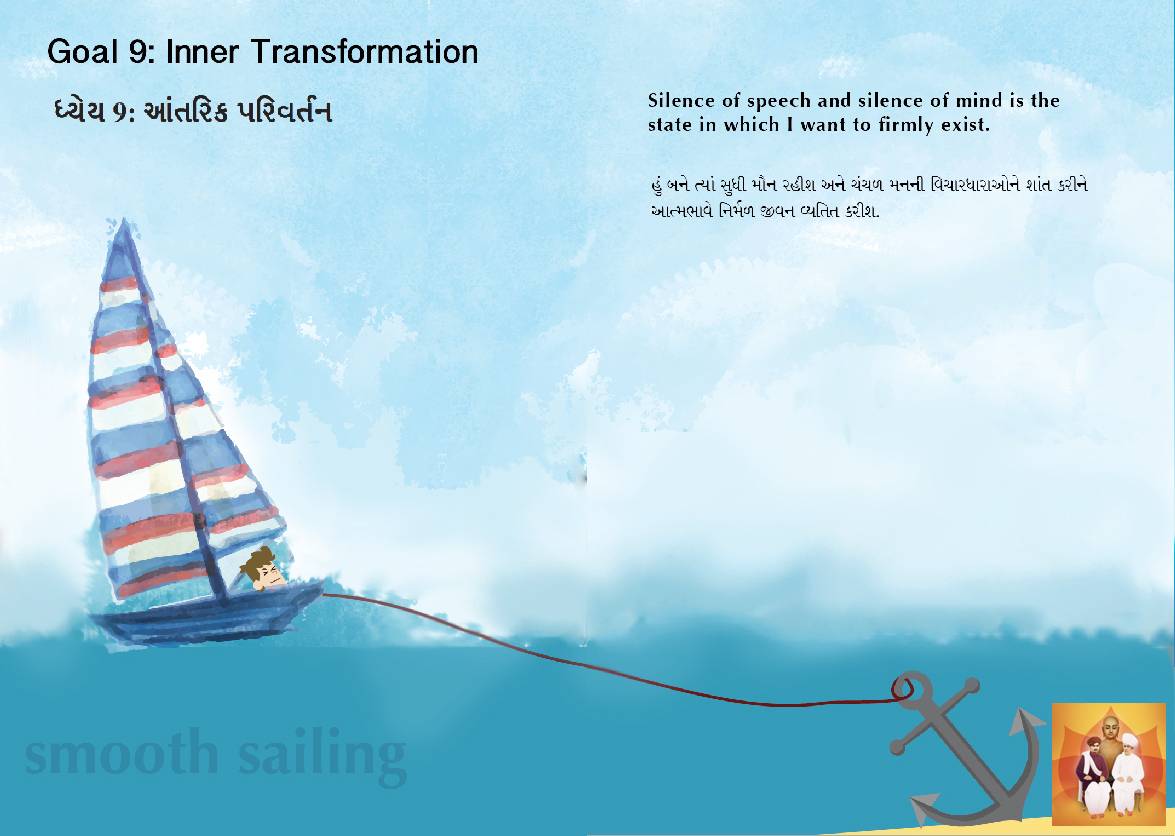જેમ વરસાદ કે વાવાઝોડું આવે ત્યારે પાણી અને ધૂળ ઘરમાં ન પ્રવેશી જાય માટે આપણે ઘરનાં બારી અને બારણાં બંધ કરી દઈએ છીએ, બરાબર એજ રીતે કર્મો અંદર ન પ્રવેશે તે માટે આપણે મન, વાણી અને કાયાના યોગોને સાવચેતીપૂર્વક પ્રવર્તાવવા જોઈએ. યોગાશ્રવનાં દ્વારોમાંથી કર્મો પ્રવેશે નહિ માટે આપણા જીવનના આપણે ચોકીદાર બનવાનું છે. પાપના પ્રનાલને બંધ કરવાનાં છે. કોઈ નબળો કે ખરાબ વિચાર આવે તો તેના આવતાની સાથેજ તેની ધરપકડ કરી લેવી. મનના મહેલમાં તેને ફરવા ન દેવો. આવી સતત જાગૃતિ હશે તો મન નિર્મળ અને વિવેકી બનતું જશે. સંકલ્પબળ, એકાગ્રતા, ધીરજ આવા લાભદાયી ગુણો ખીલતા જશે.
આશ્રવનાં દ્વારોને બંધ કરી દેવા તે સંવર ભાવના. સમ્યગજ્ઞાન, વિરતિ, અપ્રમત્તતા, નિ:કષાય પરિણામ અને અયોગ થકી આપણે મિથ્યાત્વ, અવિરતિ, પ્રમાદ, કષાય અને યોગના દ્વારોમાંથી આવતાં કર્મોને રોકી દઈએ છીએ.
સમ્યગજ્ઞાન: આત્મસાક્ષાત્કાર. દેહમાં આત્મબુદ્ધિ ન થવી અને આત્મામાં આત્મબુદ્ધિ થવી તે.
વિરતિ: સંસારમાં વિરક્ત રહેવું. વૈરાગ્યભાવ ધરીને અલિપ્ત જીવન જીવવું.
અપ્રમત્તતા: અંતરમાં જાગૃત રહેવું. જ્ઞાનભાવમાં રહી કર્મધારાને સમભાવે ભોગવી લેવી.
નિ:કષાય: ક્ષમા, નમ્રતા, સરળતા અને સંતોષને સદૈવ ઉજાગર રાખવાં.
અયોગ: મન-વચન-કાયાની સ્થિરતા. સંયમિત જીવન. તમામ કર્મોને નીર્જરી જન્મમરણથી મુક્તિ, દેહનો વિલય થવો.
યોગનું ચલાયમાનપણું તે આશ્રવ અને તેથી ઊલટું તે સંવર.
વાણી અને વર્તન એ વિચારોમાંથી પ્રગટ થાય છે માટે આપણું મન શું કરી રહ્યું છે તે જાણતા રહેવું એ અત્યંત જરૂરી છે. મન જો સ્વચ્છ, સ્વસ્થ અને સ્થિર છે તો બધું વ્યવસ્થિત થાય છે. મનને અધ્યાત્મમય રાખીને તેને ધર્મધ્યાનમાં રોકી રાખવું, વાણી દ્વારા પ્રભુ સ્મરણ, કીર્તન અને શાસ્ત્રવાંચન કરવું. મીઠું અને સત્ય વચન બોલતા રહેવું, વિચાર કર્યા વગર ન જ બોલવું. કાયા દ્વારા સમજણ સાથે, જયણાપૂર્વક પ્રવૃત્તિ કરવી. યોગ દ્વારા હિંસા ન થાય, અન્યને દુઃખ ન પહોંચે તે ઉપયોગ રાખીને બધાં જ કાર્યો કરવાં. જ્યાં અનુસાશન છે ત્યાં યોગ નિયંત્રિત રહે છે. અનુશાસન તેમજ સંયમિત જીવન એ આત્મવિકાસની નિસરણી છે.
ઘરમાંથી કોઈ વસ્તુ ચોરાઈ ન જાય માટે સંગ પ્રસંગે લાવેલા દાગીનાઓને ઘરની તિજોરીમાં રાખીએ છીએ અને બહાર જઇએ ત્યારે ઘર બરાબર બંધ કરીને જઈએ છીએ. આપણો આત્મા સહુથી અમૂલ્ય છે, એની કોઈ કિંમત થઇ શકે એમ નથી કારણ તે અનંત ગુણોનો અને અવ્યાબાધ સુખનો ભંડાર છે. ઈન્દ્રિયોનાં ક્ષણિક સુખની લોલુપતા આપણા આત્માને હરી ન લે, પરમાં એકાગ્ર અને ઓતપ્રોત બનીને તે પોતાનું ભાન ન ભૂલી જાય એ ધ્યાન રાખવું અતિ આવશ્યક છે.
કર્મોને રોકતાં આપણે તેના ફળને પણ રોકી દઈએ છીએ. દુઃખોથી બચવા માટે ધીરજ કેળવીને અંતર જાગૃતિ સાથે, યથાયોગ્ય રીતે મોટાં કે નાનાં કાર્યો કરવાની જરુર છે. ચિત્ર વિચિત્ર સુખ દુઃખના આ સંસારી પટ ઉપરના ચિત્રામણને ભૂંસી, તેને શ્વેત અને શુક્લ બનાવવાનો આ અચૂક ઉપાય છે.
લક્ષ રહે જ્યાં સુધી નિત્ય નિર્મળપણે કરમનો ડાઘ કહો કેમ લાગે?
આત્માનો લક્ષ રાખીને, જે કંઈ આપણે કરીએ છીએ તે ધર્મ છે અને તે લક્ષ ચૂકીને જે કંઈ કરીએ છીએ તે અધર્મ છે, કર્મ છે.
સંવરભાવના એમ શીખવે છે કે ઉદયને અનુસરતું જીવન જીવવું, પણ તે ઉદયમાં ભળી ન જવું. જયારે વિપરીત કર્મનો ઉદય આવે ત્યારે દેહમાં આત્મબુદ્ધિ ન કરવી. બધું શરીરને થાય છે પણ હું તેનો જોનારો અને જાણનારો જ્ઞાયક આત્મા છું. હું અક્ષય છું, કર્મસત્તાથી અનેક ગણું વધારે બળ મારા આત્મામાં છે. હું તો જીવંત છું, જાગતો છું, તે બિચારા તો જડ છે, અચેતન છે. સમભાવ રાખીને કર્મો ભોગવવાની એક અદ્દભુત કળા આ સંવરભાવના થકી હાંસલ થાય છે. સંવરભાવના ભાવવાથી સંસારનું સમ્યગ સ્વરૂપ સમજાય છે અને ત્યારબાદ એકાંત શોક અને દુઃખથી ભરેલા તે સંસારમાં હવે જન્મમરણ ન કરવાનો દ્રઢ સંકલ્પ બંધાય છે. નિર્વેદ અને સંવેગના ગુણો ખીલતા જાય છે. આત્મજાગૃતિ અને સહનશીલતાને કારણે દુઃખ પણ દૌલત બની જાય છે. જીવન એજ તપ છે, જો તેને તીખો તાપ માનીએ છીએ તો જ આપણે તેનાથી બળીએ છીયે.
જ્ઞાન કરવું એ આત્માનો સહજ સ્વભાવ છે માટે તેથી જાણવાની ક્રિયા અવિરત ચાલતી રહેશે. જે સામે આવે તેનું જ્ઞાન થતાંં જ અંતરમાં તેના સંદર્ભના વિચારો જાગે છે. એ વિચારને અનુસરતા ભાવ થયા વગર રહેતા નથી. જો તે જોડાણમાં હું અને મારાપણાનો ભાવ હોય, આત્મા મોહના રંગે રંગાઈ રહ્યો હોય તો તુરંત જાગૃત થઇ તેનાથી હું ન્યારો છું એવી સભાનતામાં આવી જવું. સાત્વિક સદાચારી જીવન તેમજ ધ્યાનની સાધના થકી આ અંતર જાગૃતિ વિશેષ ખીલતી જાય છે.
વ્યાખ્યાનસારનો બોધ આપતા પરમ પૂજ્ય ભાઇશ્રીએ કહ્યું કે, ગ્રંથિભેદ થયો છે એવા સમ્યગદર્શન પામેલા જ્ઞાની તેમજ જેની ગ્રંથિ હજુ નિબિડ છે, છેદાઈ નથી એવા અજ્ઞાની આત્મા વચ્ચે ઘણું મોટું અંતર છે. જેની નથી છેદાઈ એવો પુરુષ દરેક કાર્યોમાં લેપાયેલો રહે છે. શરીરીભાવે, દેહાભિમાન સાથે તે બધાં કાર્યો કરે છે. જે સ્વપ્ન સમાન છે તેને તે સાચું માને છે. સુખ બહાર શોધે છે. ઇન્દ્રિયોના વિષયની પાછળ દોડે છે, ઉશ્કેરાટ અને ઉદિગ્નતા ભર્યું તેનું જીવન વલણ છે. ઉદયમાં ભળી જતા તેને કષાયો થતા રહે છે. સંસારમાં તે ડૂબેલો જ રહે છે. જે જ્ઞાની છે તે આત્મામાં જીવે છે. અકર્તા ભાવે તેના કાર્યો થાય છે, તે અલિપ્ત અને અસંગ રહી શકે છે. જ્ઞાતા ભાવે દ્રષ્ટા છે. ઉદયનો ધકકો વધારે બળવાન હોય તો તે અંદરથી હલી જાય છે પણ તેને અનંતાનુબંધી કષાય થતા નથી. જીવન કાળ દરમિયાન તે મોટે ભાગે શાંતિ અને સ્વસ્થતા સાથેનું જાગૃત જીવન જીવે છે. સંસારી અને જ્ઞાની પુરુષો આમ કેટલા અધિક જુદા પડે છે. આત્મા સાક્ષાત્કાર થાય અને કર્મો ક્ષય થતાં મુક્તિપુરી સુધી પહોંચાડી દે એવી આ સંવર ભાવના છે.
પરમ કૃપાળુ દેવ શ્રીમદ્જી પત્રાંક ૪૭ માં લખે છે કે, “એક ભવના થોડા સુખ માટે અનંત ભવનું અનંત દુઃખ નહીં વધારવાનો પ્રયત્ન સત્પુરુષો કરે છે.” ક્રોધને પ્રેમ અને ક્ષમાથી, માનને લઘુતાભાવથી, કપટને સરળતાથી અને લોભને સંતોષથી જીતી લે છે.
જૈન દર્શનમાં, પાંચ સમિતિ અને ત્રણ ગુપ્તિ એ આઠ પ્રવચન માતા કહેવાય છે. જેમ માતા બાળકનું રક્ષણ કરે તેમ આપણા આત્માનું તેઓ રક્ષણ કરે છે. પ્રવૃત્તિમાં સમિતિ અને નિવૃત્તિમાં ગુપ્તિનો આશ્રય લઈને પ્રવૃતિ તેમજ નિવૃત્તિ દરમિયાન આપણો આત્મા નિષ્કલંકી રહે એ આપણો પુરુષાર્થ છે. જીવન જીવતા ઓછામાં ઓછી વસ્તુઓ વાપરવી. પાણી, ભોજન, કપડાં વીજળી બધું વિચારીને વાપરવું. વૈરાગ્ય ભાવે ત્યાગી જીવન જીવવું. ભય દેખી કાચબો પોતાના અંગોને સંકોચી લે છે તેમ મન, વાણી અને કાયાના વ્યાપારને ટૂંકાવી દેવો. જરૂરિયાત હોય ત્યાંજ જવું અને કામ હોય તો અન્યને મળવું. મૌન રહી જડ ચેતનનો વિવેક કરતા રહેવું. સંસારમાં રહ્યા છતાં સંન્યાસી થઈને જીવવુ.
